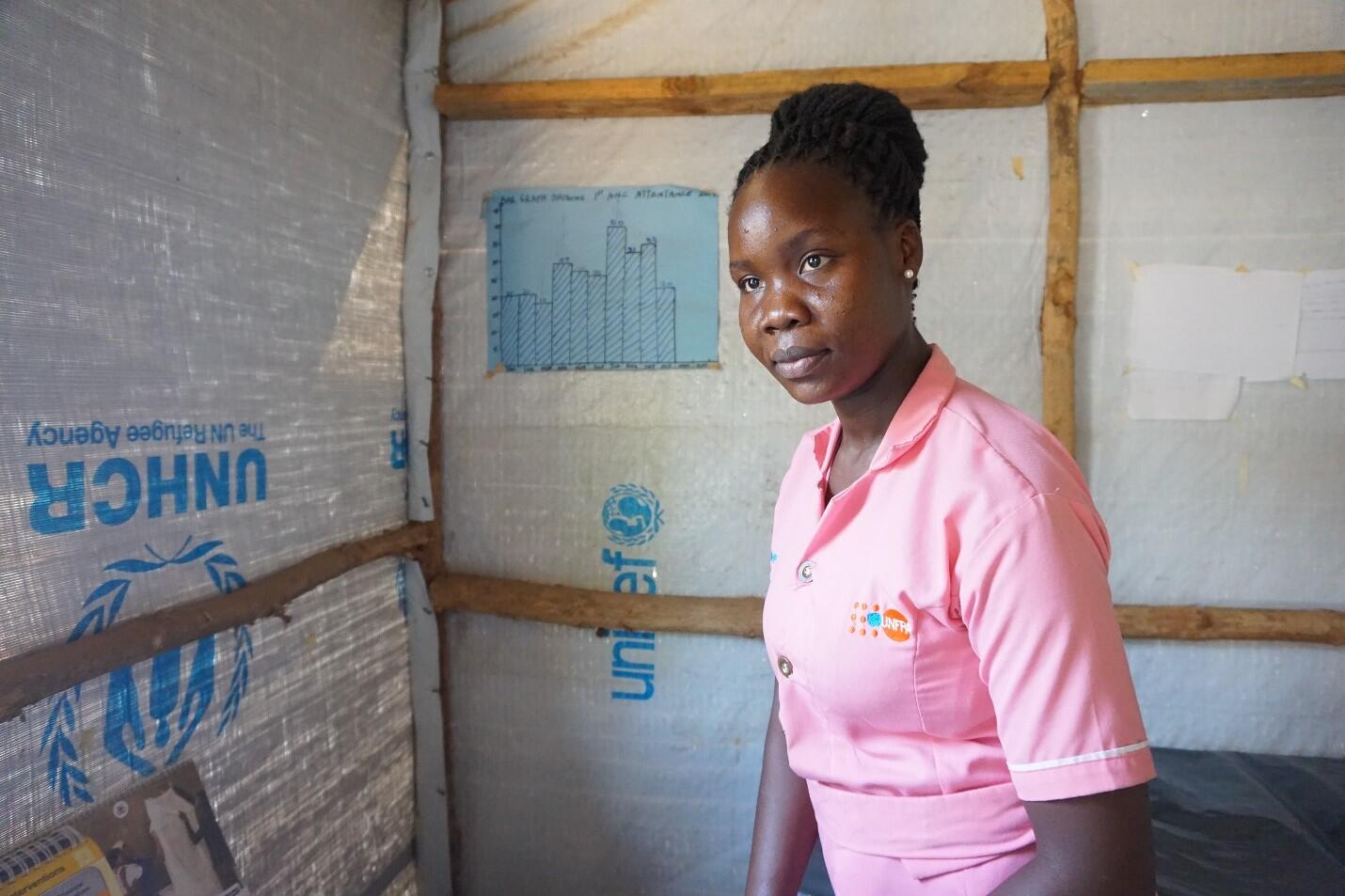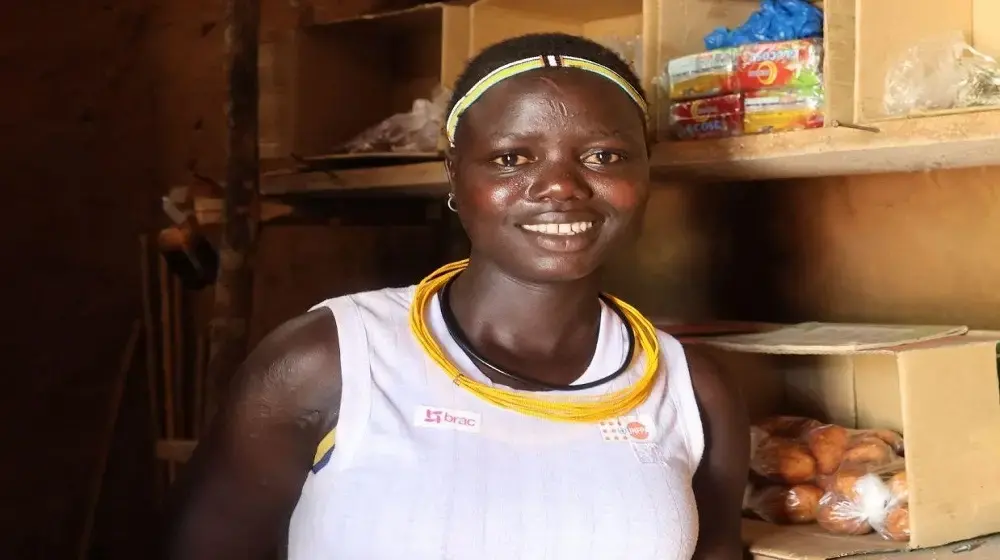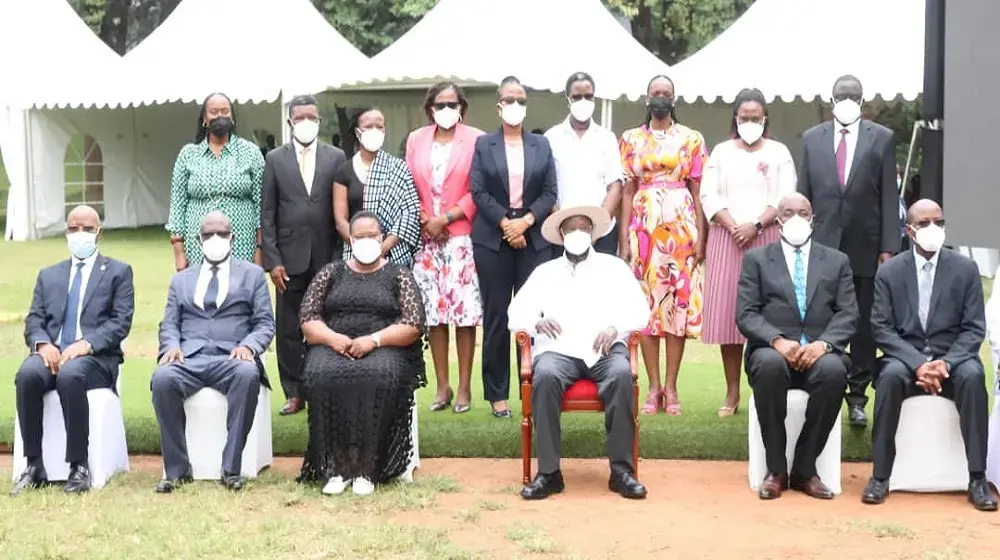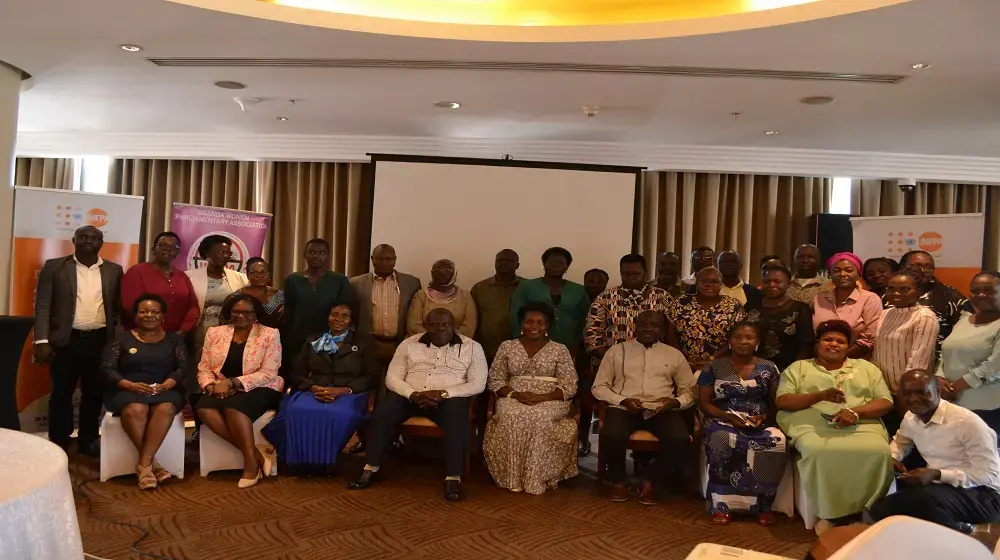When Midwife Proscovia Adong was deployed to Elema Health Centre II in June 2019, she found that the facility maternity unit had recorded over twenty (20) home deliveries and the born before arrival cases in a period of six months from January to June 2019.
In 2014, Elema HC II was reorganized to provide emergency maternal health services to refugees of Elema and Baratuku settlements, as well as the host communities around Miniki Parish in Dzaipi sub-county in Adjumani district, thus serving a catchment population of 11,045 people.
For Proscovia and three other midwives working at the maternity in Elema HC II, it meant ensuring 100 percent skilled birth attendance at the facility, slightly above the national average of 95 percent. Thus, the midwives embarked on strengthening weekly health education sessions at the facility, targeting women of reproductive age with information on importance of delivering in health facilities. They also focused on how to avoid birth before arrival, danger signs in pregnancy, and the importance of routine antenatal attendance, among other discussions.
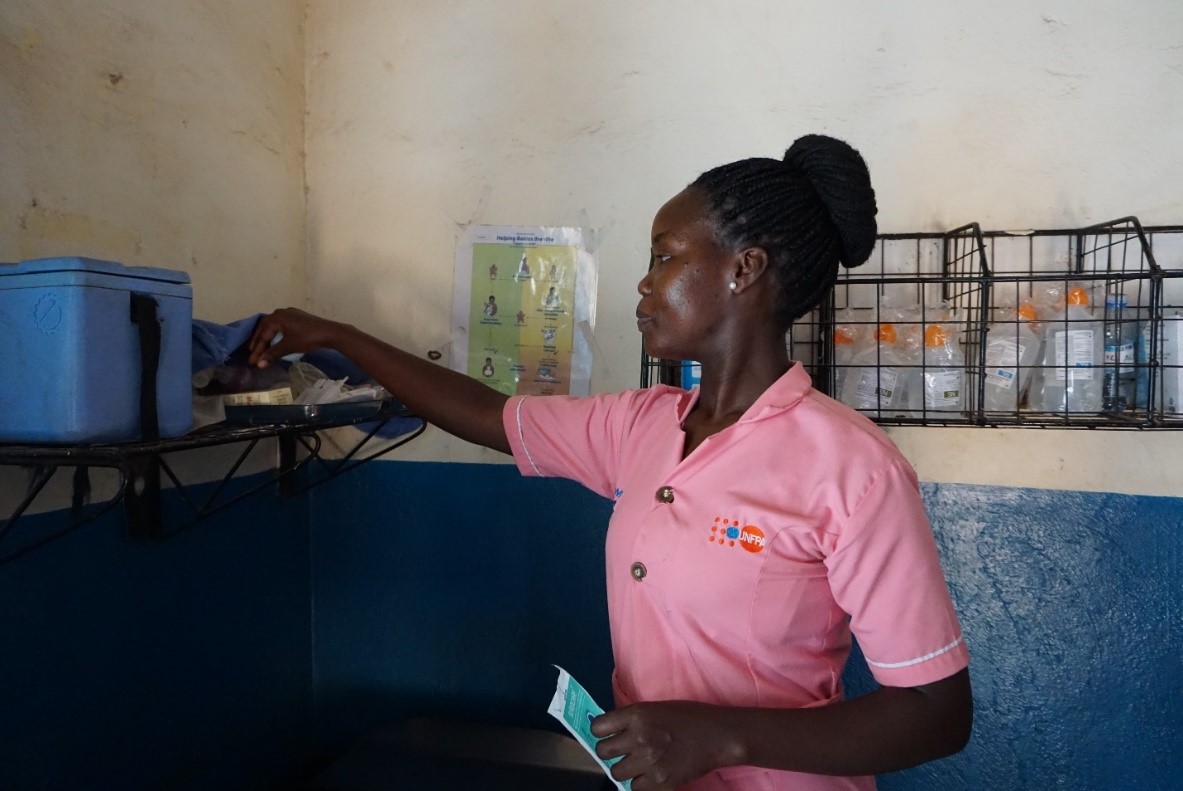
PHOTO: UNFPA/ Patricia Nangiro.
“During the sessions, the first-time mothers said that labor usually found them unprepared, so we started giving them birth preparedness plans from the time they attend antenatal care,” said Proscovia.
“I also worked with the maternity unit In-Charge to identify a known Traditional Birth Attendant (TBA) in the settlement who was involved in delivering mothers at home; we encouraged her to always escort mothers to the health facility, where she took part in the birth process.”
According to the midwives, the move to increase sensitization and include the TBA into the facility delivery process led to a reduction in home deliveries and the born before arrival cases to average of two per month; while health facility deliveries went up from an average of 15 to about 25 per month.
With the support of CERF funding, UNFPA with its implementing partner Lutheran World Federation (LWF) was able to deploy 12 midwives to various health facilities and build the capacity of over 345 health workers on Emergency Obstetric and Newborn Care (EmONC) through seminars, workshops and conferences, of which Proscovia was a beneficiary.
“I gained new knowledge and skills regarding the management of obstetric emergencies and shared the same knowledge with other midwives during the departmental meeting,” said Proscovia.
“I also started to consistently follow-up on post-natal care and so far all mothers endeavor to return back for further support on appointment days.”
Proscovia further explains initiatives she has since undertaken after the EmONC training that attracted more mothers to deliver in the facility such as; giving enough time to answer all their questions, managing maternity medical files in an organized manner, ensuring infection control is adhered to and giving medication at the right time as communicated from the training.
“I have also ensured that the waiting time for mothers is reduced as I attend to them as soon as they arrive at the facility,” she said.
-Written by Patricia Nangiro

